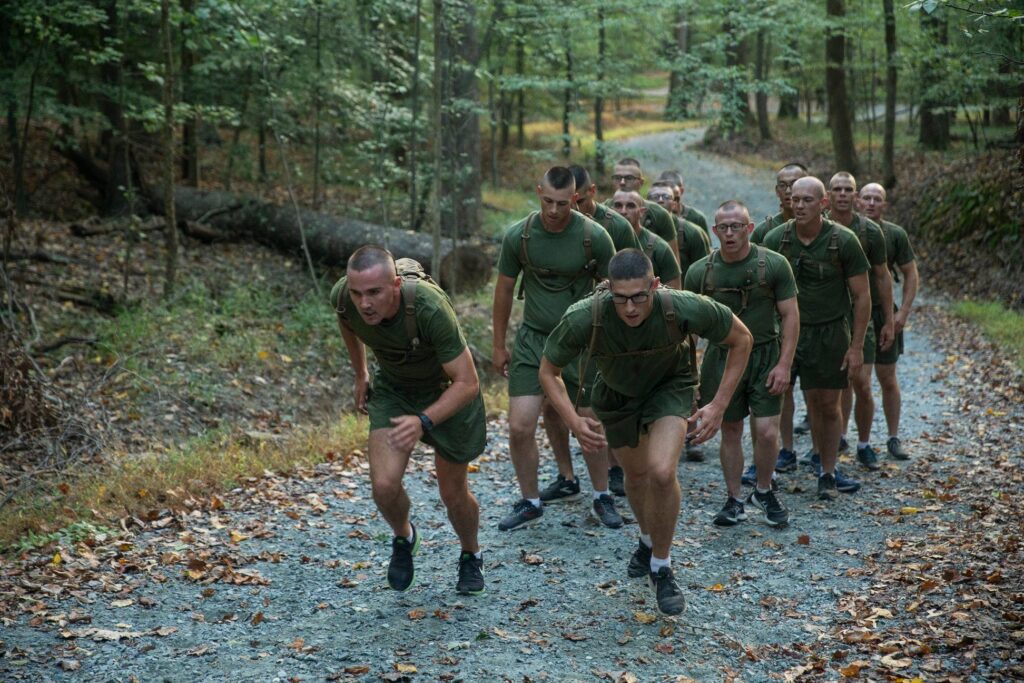Officer Candidates School
LEADERSHIP and Endurance
“Tighten Up”
Week 4 is filled with challenges and determination. The first few weeks have only laid the groundwork for your candidate’s journey. Now, they’re ready to tackle the next exciting chapter on their path to becoming Marines.
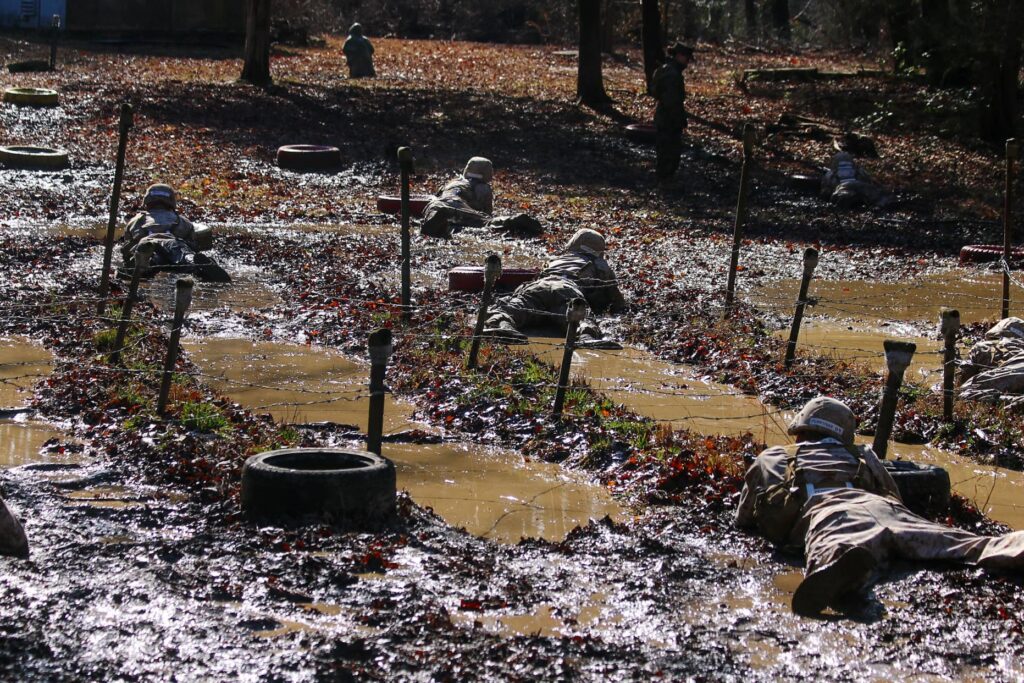
Developing the Combat Mindset – Fire and Movement Course
Week 4 marks a pivotal transition at Officer Candidates School as candidates begin developing the combat mindset essential for leading Marines in the field. The week introduces the Fire and Movement Course, where candidates learn to maneuver under pressure using tactical techniques such as cover and movement, obstacle negotiation, and team-based coordination.
These foundational skills are critical building blocks for future combat training, as candidates prepare to execute the more advanced Fire Team Assault Course later in the program. This training not only sharpens their technical and tactical proficiency—it reinforces confidence, decisiveness, and the mental toughness required of Marine Corps Officers.
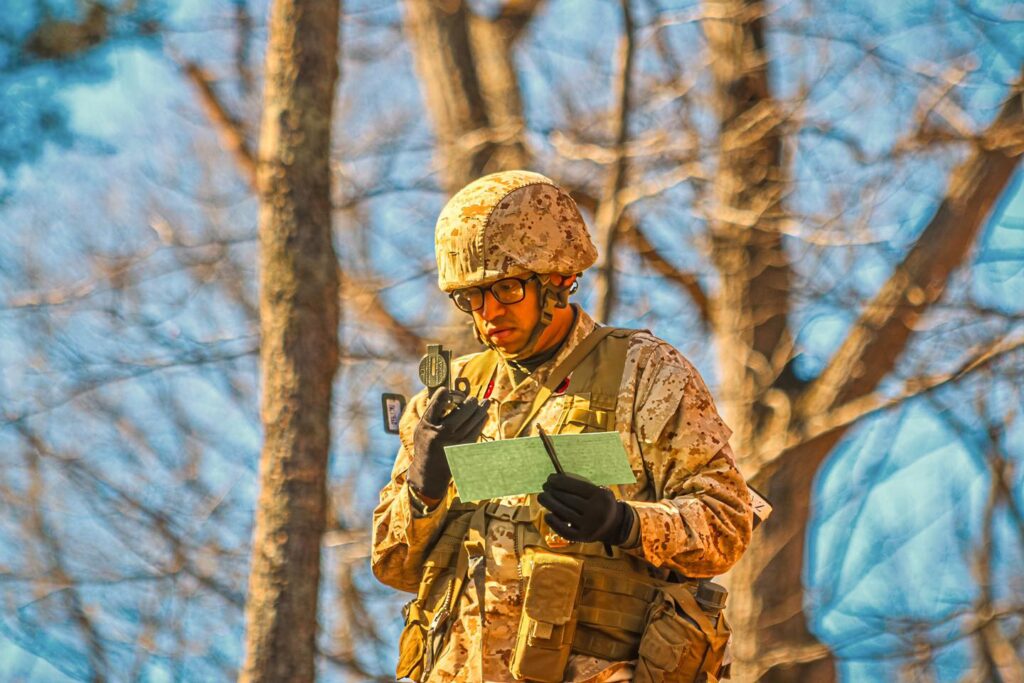
Intro to Compass Reading – Navigating with Purpose
This week at Officer Candidates School, candidates are introduced to one of the most fundamental skills of a Marine officer: compass reading. In this introductory course, they’ll learn how to use a lensatic compass to accurately determine direction, plot routes, and navigate unfamiliar terrain using only a map and natural landmarks.
Instruction focuses on key concepts such as:
- Understanding azimuths and how to shoot a bearing
- Orienting a map with and without a compass
- Plotting points and calculating distances
- Converting grid and magnetic north
- Pacing techniques to measure the ground distance covered
This training lays the foundation for upcoming land navigation events and instills the importance of spatial awareness, precision, and self-reliance in the field. Whether leading a patrol or coordinating movements in challenging environments, this is a skill every Marine Officer must master.
Midweek Challenge – Final Physical Fitness Test (PFT)
Midway through the week, candidates will face one of the most physically demanding benchmarks of Officer Candidates School: the Final Physical Fitness Test (PFT). This evaluation is not just a measure of fitness—it’s a reflection of their discipline, endurance, and mental toughness developed over weeks of intense training.
The PFT consists of three events:
- Pull-ups or Push-ups (maximum reps in 2 minutes) – Demonstrating upper-body strength and muscular endurance
- Plank Hold – Testing core stability and strength, replacing the previous crunches portion
- Three-Mile Run – A timed endurance event measuring cardiovascular conditioning and mental grit
This test plays a critical role in determining a candidate’s fitness-to-lead status and contributes to their overall score at OCS. Scoring well can impact final evaluations, future assignments, and their standing among peers.
By this point, candidates have pushed themselves through weeks of relentless PT, hikes, and tactical challenges. The Final PFT is their opportunity to prove how far they’ve come—and to set the physical standard expected of Marine Corps Officers.
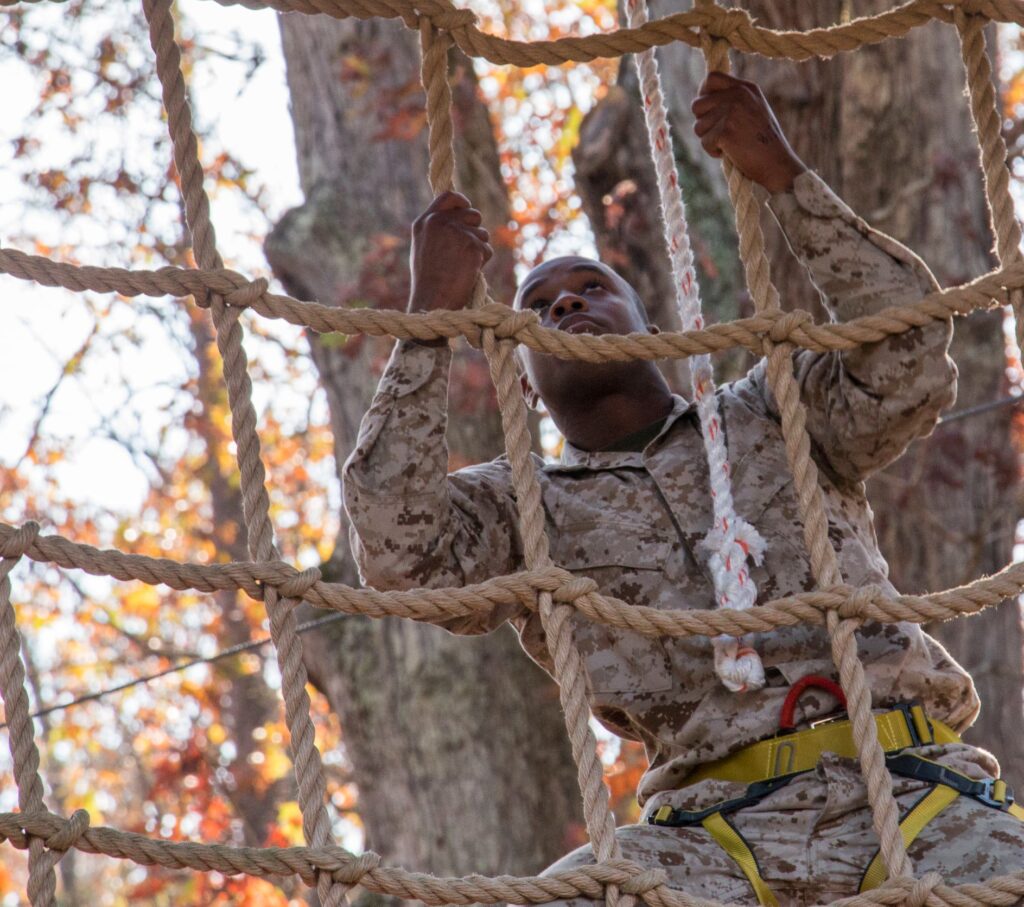
Next Up: Obstacle Course and Tarzan Course
Following the Final Physical Fitness Test, candidates will take on two of the most iconic physical challenges at Officer Candidates School—the Obstacle Course (O-Course) and the Tarzan Course.
These courses are more than just physical tests; they’re designed to push candidates beyond their comfort zones and build confidence, coordination, and grit under pressure.
- Obstacle Course (O-Course):
Candidates navigate a fast-paced series of hurdles including rope climbs, high walls, logs, and balance beams. This event is timed and emphasizes agility, upper-body strength, and mental toughness. Precision and speed are key as candidates push to improve personal times and meet Marine Corps standards. - Tarzan Course:
Inspired by British Royal Marines training, this high-angle confidence course challenges candidates to overcome fear and test their physical and mental limits. It includes suspended ropes, cargo nets, and aerial obstacles that demand full-body coordination, trust in equipment, and the courage to commit.
Together, these courses are designed to forge resilience, build teamwork, and prepare candidates for the physical demands of leading Marines. It’s a critical moment in their transformation—from civilians to confident, capable leaders of Marines.
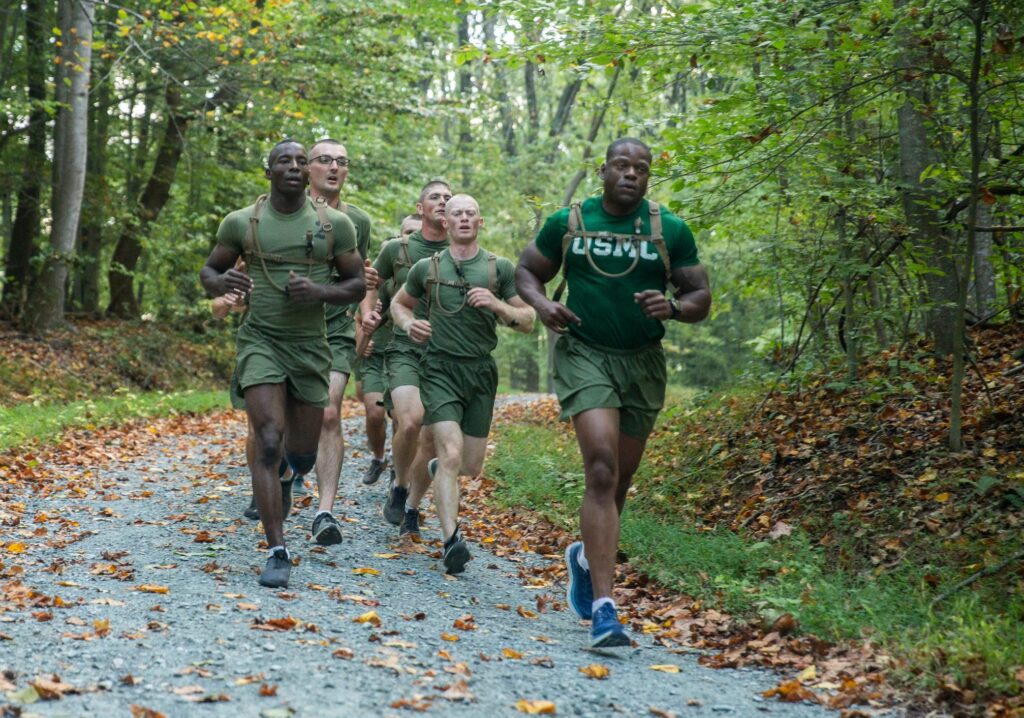
Pushing the Limits in Seniors’ Fartlek Course
Ending the week at Officer Candidates School (OCS), Alpha and Delta Company tackle the demanding Seniors Fartlek Course. This training combines running with targeted exercises at designated stations, building overall strength, stamina, and endurance. The Fartlek format, meaning “speed play” in Swedish, challenges candidates with varied exercises after each running segment, pushing them to their physical limits. In addition to this physical test, candidates will face Exam III and a history evaluation. They will also be introduced to Boots and Utes running while conducting the Eye of the Needle.
As you can tell, your candidate’s week is filled with a lot of physical activity. This is to help prepare them for the continued physical demands that will be expected of them throughout the rest of the training. In your letter this week, ask your candidate what they learned from executing the Fire Movement Crs. Remind them to rest, recover, and STUDY.
Thanks for reading along for week four. I’ll see you next week with more insights and stories during this pivotal time for you and your candidate.
Semper Fidelis,
SgtMaj (ret) Paul Davis
